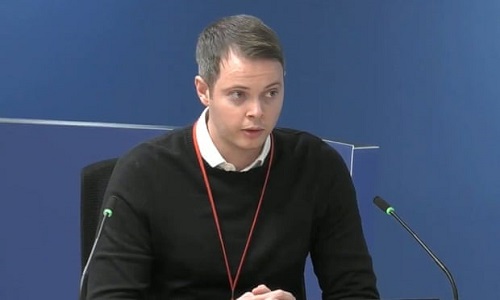 Monday, September 30, 2024
Monday, September 30, 2024  Monday, September 30, 2024
Monday, September 30, 2024 
Executives who sold combustible insulation for use on Grenfell Tower perpetrated a “fraud on the market” by rigging a fire test and making “misleading” claims about it, a public inquiry has heard.
Celotex, a subsidiary of the French construction materials company Saint-Gobain, behaved in a “completely unethical” way, admitted Jonathan Roper, a former assistant product manager.
Roper worked on two fire tests of the foam panels and subsequent sales plans as the company tried to grab a slice of a £10m-a-year insulation foam market.
In the Grenfell fire on 14 June 2017, the foam, known as RS5000, fuelled the flames and released toxic gases and smoke. The foam was withdrawn from the market nine days later.
In evidence to Grenfell inquiry’s examination of the manufacture, testing and sale of the largely plastic materials, Roper said the firm had been “dishonest” by “over-engineering” a cladding fire safety test to achieve a pass.
A first test in February 2014 failed in 26 minutes, with flames engulfing the rig. But after changing some of the materials used around the insulation, including adding concealed fire-retardant panels, a second test three months later passed and was used to market the foam boards as safe for high-rise buildings.
Roper was asked to produce slides for the sales team that would not include mention of the earlier failed test or the fact that the magnesium oxide board had been added in the second test. The slide was “downright misleading” and “intended to mislead”, he agreed under cross-examination by Richard Millett QC, counsel to the inquiry.